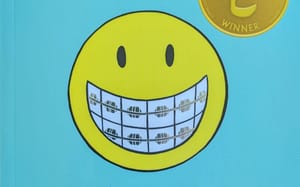A busy week with a trip at the end meant little posting. Here is a note on travel reading.
- I received When red is black by Qiu Xiaolong over Christmas and finished it on the way back from New York City yesterday evening. Chen, the detective with literary interests is reflecting on the emergence of marketing, and its non-existence within the socialist state economy.
There was no need or room for marketing. For many years, Chinese people cited a proverb: if the wine smells really wonderful, customers will come in spite of the length of the lane. Such an approach was not applicable in today’s business world. [When red is black. New York: Soho Press inc., 2004. p. 140]
Might have some relevance for libraries?
- There was some discussion of faculty reading and publishing habits at the meeting I was at. To what extent, it was asked, do folks in particular subject areas actually read the journal literature? And are there changes in the reliance on refereed output in tenure and promotion discussion? In this context I was interested to read in an advert in the Economist for academic staff at the Tanaka Business School, Imperial College, that “only applicants who have published in top international journals will be considered”.
- The Atlantic had a nice piece about music on the web by Michael Hirschorn. It looks at a variety of ways in which Pandora, Last.fm, Hype Machine, iLike and other applications enhance his experience.:
I’d long felt a profound sense of loss over the demise of the Mancunian band the Stone Roses, whose eponymous 1989 album raised rave-y Britpop to the level of sacrament. So I keyed in Stone Roses, expecting to hear the similar- sounding Charlatans UK or Kasabian, a current Roses-ish group. Instead, I was kicked back Neutral Milk Hotel, an Athens, Georgia–based collective centered around an artist named Jeff Mangum. NMH’s 1998 In the Aeroplane Over the Sea is a wildly over-the-top cult masterpiece, an operatic song cycle that probes the mystical import of the fate of Anne Frank and other tragedies. Take my word: it sounds only marginally like anything by the Stone Roses. But both albums are on my mental top-ten-of-all-time list, and I had flattered myself that only I saw the cosmic linkages between the two albums’ mystico-religious sound washes, rave-ups, and idiosyncratic lyricism. Having it recommended to me was a goosebump-inducing moment—and a neat demonstration for me of why social media is sweeping the Web: There are other people out there who feel this as deeply as I do! Maybe we can all get together and achieve a higher unity! [The Digital-Music Mosh Pit]
- It was nice that I could look up the Atlantic article on the web when I got in. Checking my feeds, I also came across a very nice post by Anil Dash about how his iTunes collection got corrupted leaving him only with the raw files themselves – “but all of the metadata is blown away — playlists, play counts, ratings, and all my little tweaks to song and album titles”.
I’m surprised by how much grief this causes me. As it turns out, my experience of these songs is determined by the record of how I’ve lived with them — without the information about how I’ve listened to them, and how often, and what I thought of them, they’re just not my songs. It makes sense, at some level; Art without curation or creation without witness leaves a work mute. But as geeks, a lot of us wouldn’t even necessarily see this as data loss — the original files, after all, is still there.
There’s a lesson here for the prophets of abundance, and for all of us who see formerly valuable things becoming commodities. We might be able to replace the raw materials with their abundant, or even free, counterparts. But if our emotional experiences are lost along the way, the perfect digital copies are worthless, too. [Anil Dash: This ain’t a blog, it’s an arms race.]
I was reminded of my earlier discussion of Benjamin, the personal collection and aura.
- Both the Economist and the Atlantic carried adverts from Cisco talking about the ‘human network’: The Economist ad had a picture of Thiksey, Ladekh. It started with “On the human network, a remote village is included. In a place where books don’t usually exist, the Library of Congress can”. The ads are a bit corny, but I thought it interesting that they could reasonably talk about the network as a place which overlays actual places worldwide, with a variety of intersections



